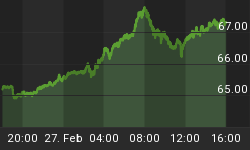Last week politicians in Washington made a few things clear about how they really feel about the state of the union. First, they are beginning to hear the growing discontent with the size and scope of government and the broken promises that keep piling up. Certain events in Massachusetts recently made that statement loud, clear and unavoidable. In the face of those events, the powers that be made the determination that some populist rhetoric was in order, and the idea of a spending freeze in Washington was proposed, albeit with several caveats. These caveats to the proposed spending freeze ensure that we are not at any real risk of actually doing anything about spending.
First of all is timing. It wouldn't go into effect until 2011, which allows plenty of time to increase spending levels quite a bit before they are frozen. If the administration really understood and cared about our spending problems they would not freeze spending a year from now, but cut spending immediately and significantly. But, spending cuts almost never happen in Washington, and they are not likely now or a year from now - if the politicians have anything to say about it.
The second caveat is the huge areas of the budget that are shielded from this freeze. The entire State Department budget is exempt, as are all entitlements, all military industrial spending and almost all foreign aid. Fully 7/8 of federal spending is excluded from this freeze, and some areas to be frozen were actually set to decrease, which means a freeze actually guarantees a higher level of spending.
Especially insulting is the idea that in spite of our own fiscal problems at home, taxpayer dollars will continue to be sent overseas in the form of foreign aid where it often does more harm than good. When need is demonstrated to Americans and they can afford it, they can be counted on for a tremendous outpouring of private, voluntary charity to worthy aid organizations, as we recently saw in Haiti. By contrast, government-to-government aid is taken from the poor by force and too often enriches the corrupt. It is counterproductive and wasteful. But the idea of eliminating, freezing, or reducing foreign aid is not up for serious debate any time soon.
The third caveat is what is included in the freeze that would make it politically impossible to pass Congress, for example air traffic controllers salaries, education, farm subsidies and national parks.
I do not necessarily want a cut in spending in this country - I just want to change who does the spending. The spending should be done by the people who earn the money, if they choose, and on what they choose, without any government interference. That is what makes the economy work. Politicians should stick to the very limited roles given them by the constitution instead of allocating such a sizeable portion of our capital and intervening through regulations and tax policy. But because politicians have disregarded the constitution, and the people have no idea what rule they will break next, there is already a very real spending freeze underway in this economy, by the people. If government would stick only to what it was authorized to do, and leave the rest to the people, most of these problems would resolve themselves.















